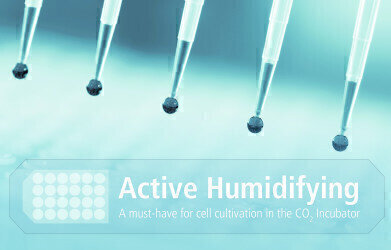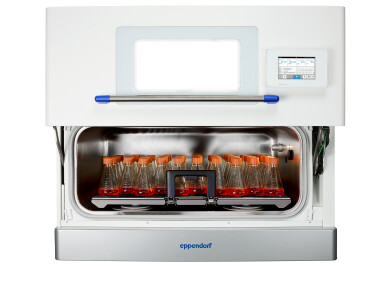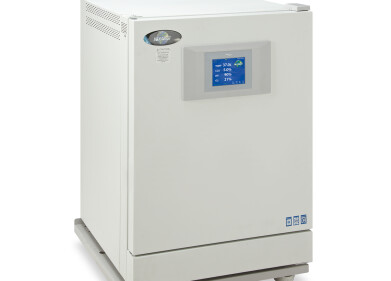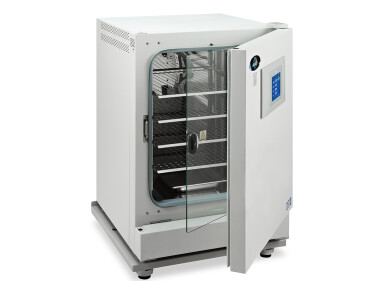Incubators
The CO2 incubator in chronobiology
Mar 02 2016
Why some people are ‘early birds’ while others are ‘night owls’ is just one question chronobiologists at the Zurich University deal with in the laboratory of the Institute of Pharmacology and Toxicology.
Amongst others they perform gene expression tests to investigate the mechanism of the body clock on a molecular-biological level in Memmert CO2 incubators INCO246med. To visualise the processes in a cell in vitro, researchers use a trick. They use bioluminescence, the ability of organisms to produce light. The luciferase gene, which is responsible for light production, is transfected under the control of a ‘clock gene’ into the cell which is investigated. This ‘reporter’ makes the cells light up as soon as this gene is activated. The intensity of the light radiation is measured in the CO2 incubators with the help of a robot that moves the ultra-sensitive light sensors over the cells at regular intervals.
What is valued particularly highly in the Memmert INCOmed is the possibility to seal off the chamber entirely, as well as the sterilisation function.
At the beginning of an important research project at Erlangen University, the Memmert CO2 incubator INCOmed was evaluated. The result showed that the active humidification system decreases evaporation inside the chamber considerably as compared with common incubators with passive humidification.
In cell cultivation in multiwell plates, evaporation and condensation cause fluctuations in the concentration, which may significantly falsify test results. It is therefore essential that volume constancy in the well is guaranteed. In order to determine cell viability, a clear saline solution (PBS) was coloured using Trypan blue, with 600 µl of the solution being added to each well. The well plate was deliberately not covered with parafilm. High dynamics, that is the responsiveness of the INCO108med to the continuous change of the gas mixture in the chamber humidified to 95% rh, became apparent after the 10 days of testing. Caused by the frequent opening of the door, the outer well rows had lost a maximum of about 40% of their humidity content, while the inner rows had only lost about 10%. On non-workdays, volume constancy and an increase in humidity content were determined.
INCOmed provides reliable conditions for bioassays
Performing bioassays to test the effectiveness of a substance on organisms is a core task of the Department of Ecosystem Analysis (ESA) at the RWTH Aachen. Two Memmert CO2 incubators provide the necessary constant and reliable conditions.
Test organisms like cell cultures, yeasts and bacteria help to understand the effectiveness of chemicals or complex environmental samples on the living nature as well as the underlying functional mechanisms. In the course of the test series, effects like genetic mutations, dioxin-like activity and endocrine effectiveness are documented and analysed, the toxicity is assessed and the risk potential for the environment can be extrapolated.
The easy cleaning is especially an advantage of the Memmert CO2 incubators. The programme for the sterilisation of the working chamber including all fittings and sensors supports sterile working conditions, which is particularly important during the cultivation of mammalian cells. Through an opening in the glass door the CO2 sensors can be monitored via external measuring equipment without changes in the CO2 concentration.
Digital Edition
Lab Asia 31.6 Dec 2024
December 2024
Chromatography Articles - Sustainable chromatography: Embracing software for greener methods Mass Spectrometry & Spectroscopy Articles - Solving industry challenges for phosphorus containi...
View all digital editions
Events
Jan 22 2025 Tokyo, Japan
Jan 22 2025 Birmingham, UK
Jan 25 2025 San Diego, CA, USA
Jan 27 2025 Dubai, UAE
Jan 29 2025 Tokyo, Japan


.jpg)

















